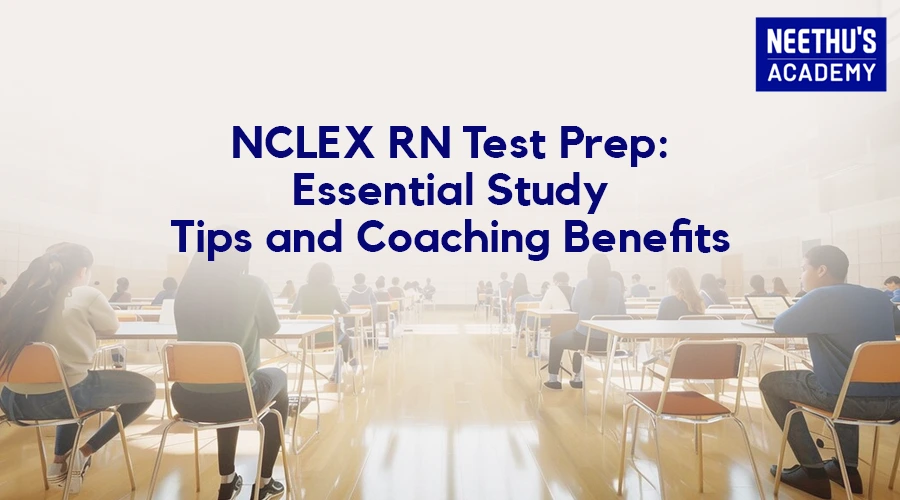What is next generation NCLEX -RN Exam and its Importance
What is next generation NCLEX-RN? The Next Generation NCLEX RN (NGN) is indeed an important development in the field of nursing education. It represents a shift in how nursing competency is assessed and is designed to reflect the evolving healthcare landscape and the changing roles and responsibilities of nurses. But, in detail, what is Next Generation NCLEX RN?
As an answer to the above, this blog is a complete Next Generation NCLEX study guide.
Here are some key points to be aware of regarding the Next Generation NCLEX 2023:
- Purpose: The Next Generation NCLEX RN is designed to better assess a candidate’s clinical judgment and decision-making skills. It aims to move beyond traditional multiple-choice questions to include more complex and interactive items that simulate real-world nursing scenarios.
- Item Types: Next Generation NCLEX RN will include a variety of item types, such as multiple-choice questions, multiple-response questions, hot spot questions (identifying specific areas on an image), and more. These item types are meant to evaluate a candidate’s ability to apply nursing knowledge in diverse clinical situations.
- Clinical Judgment Model: The Next Generation NCLEX RN is built around a Clinical Judgment Model that outlines the cognitive processes nurses use to make clinical decisions. This model emphasizes the importance of critical thinking, clinical reasoning, and problem-solving skills.
- Adaptive Testing: Next Generation NCLEX RN may incorporate adaptive testing, which means that the difficulty of the questions presented to a candidate may adjust based on their responses. This allows for a more tailored assessment of a candidate’s abilities.
- Preparation: Given the changes in Next Generation NCLEX RN, it’s essential for nursing students to adapt their preparation strategies. Students should seek updated study materials and resources specifically designed for the Next Generation NCLEX RN format.
- Transition Period: There may be a transition period during which both the traditional NCLEX and the Next Generation NCLEX RN are offered. This is to ensure a smooth transition for candidates and nursing programs.
- Resources: Stay informed about NGN updates and resources provided by the National Council of State Boards of Nursing (NCSBN) and your nursing school. These resources can help you understand the changes and prepare effectively.
- Practice Exams: Consider taking practice exams or practice questions that align with the NGN format to get a feel for the new test structure.
- Test-Taking Strategies: Brush up on test-taking strategies that emphasize critical thinking and clinical judgment. These skills will be crucial for success in the Next Generation NCLEX RN.
- Stay Informed: Keep an eye on official announcements from NCSBN and your nursing school for updates on NGN, including any changes to the test format, content, and timing.
The Next Generation NCLEX- RN is intended to better reflect the demands of modern nursing practice and ensure that newly licensed nurses are well-prepared to provide safe and effective patient care. It’s essential for nursing students and educators to stay informed about these changes and adapt their preparation accordingly to succeed in the Next Generation NCLEX RN.
The Next Generation NCLEX (NGN) will indeed have a significant impact on nursing students in several ways:
- Deeper Understanding and Critical Thinking: As you mentioned, the NGN will place a stronger emphasis on clinical judgment and the application of knowledge. Nursing students will be expected to not only memorize facts but also to critically analyze information and make informed decisions in realistic patient care scenarios. This shift encourages a deeper understanding of nursing concepts and their practical application.
- Preparation for Real-World Situations: The NGN’s focus on clinical judgment prepares nursing students for the challenges they will face in real healthcare settings. It encourages them to think on their feet, prioritize tasks, and respond appropriately to complex patient situations. This preparation is crucial for ensuring that new nurses are well-equipped to provide safe and effective care.
- Adaptive Testing Experience: The computer-adaptive platform of the NGN adapts the difficulty of questions based on a student’s performance. This means that students may receive questions that are more tailored to their individual knowledge level. However, it also means that they won’t be able to skip questions and return to them later, which was possible in traditional paper-based tests. This change in test format requires students to manage their time effectively during the exam and answer each question as it comes, adding a new layer of test-taking strategy.
- Increased Preparedness: Overall, the NGN aims to better prepare nursing students for their future roles as healthcare professionals. Assessing their ability to make clinical judgments and apply knowledge in real-world situations, ensures that graduates are not only knowledgeable but also competent and safe practitioners.
Preparing for the Next Generation NCLEX – RN (NGN) exam is crucial for nursing students and educators alike. The NGN exam is designed to assess clinical judgment and decision-making skills, and it introduces some new elements that may differ from previous NCLEX exams. Here are some tips for preparing for the NGN exam:
- Stay Informed: Keep up to date with the latest information about the NGN exam. Visit the official website of the National Council of State Boards of Nursing (NCSBN) and review any updates or resources they provide regarding the NGN.
- Understand the Changes: Recognize the key differences between the NGN exam and the previous NCLEX exams. Focus on the new aspects of clinical judgment, such as the ability to differentiate between acute problems and those requiring immediate attention based on environmental cues.
- Enhance Clinical Judgment: Clinical judgment is a critical skill for nurses. Incorporate case studies, simulations, and real-world scenarios into your nursing education to develop and refine your clinical judgment skills.
- Use Environmental Cues: Learn to interpret environmental cues, such as the patient’s location, medical needs, and time pressure indicators, to make informed decisions. Practice scenarios that challenge you to identify these cues and respond appropriately.
- Develop Critical Thinking Skills: Critical thinking is fundamental to clinical judgment. Work on developing your critical thinking abilities through problem-solving exercises, group discussions, and critical thinking workshops.
- Engage in Practice Questions: Utilize NGN-specific practice questions and assessments to familiarize yourself with the format and content of the new exam. These questions will help you adapt to the NGN’s focus on clinical judgment.
- Collaborate and Discuss: Engage in discussions and collaborations with peers and instructors. Sharing different perspectives and experiences can help broaden your clinical judgment and decision-making skills.
- Stay Current with Nursing Literature: Keep up with current nursing research and literature to stay informed about the latest evidence-based practices and guidelines that may be tested on the NGN exam.
- Seek Guidance from Educators: Reach out to your nursing educators and instructors for guidance and support in preparing for the NGN exam. They can provide valuable insights and resources.
- Practice Time Management: The NGN exam may include time-sensitive scenarios. Practice time management during your studies to ensure you can make timely decisions in a high-pressure environment.
Remember that the Next Generation NCLEX -RN exam is designed to better prepare nurses for real-world situations. By focusing on clinical judgment and decision-making, nursing schools can help their students become competent and confident nurses who are ready to provide safe and effective patient care.





